×


We have detected your country as:
Please click here to go to the USA website or select another country from the dropdown list.

{image_1}As turmoil continues in the Middle East, one organization whose name has surfaced often is the Muslim Brotherhood. Some in Western media describe the Brotherhood as a moderate organization that eschews violence and stands on a platform of humanitarianism and democracy. Others portray the group as radical and militant, with a history of violence and a very political agenda. In the final analysis, perhaps there is some truth in both views.
Continue Reading »
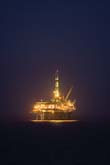
{image_1} For years, it seemed that Israel was the only Middle Eastern nation lacking in oil and natural gas. More recently, however, Israel has gone from pauper to prince in the energy field in a short time, with large natural gas discoveries in the Mediterranean Sea inspiring dreams of energy independence, increased revenues, and perhaps even energy exports. But there is more potential to Israel’s energy discovery than just dollar signs. In a world where Israel’s friends seem to be shrinking in number, the Jewish state’s newly found resources offer the potential for political breakthroughs.
Continue Reading »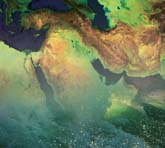
While a number of nations in the Middle East typically receive extended news coverage, Tunisia wasn’t one of them. However, the popular protests in the Arab country that culminated in deposing the nation’s autocratic ruler have resulted in a tidal wave of uprisings and political turmoil making headlines from Egypt to Iran—and many places in between. Even Israel, the United States, and Europe have found themselves in the news regarding the Middle Eastern protests, as the toppling of dictatorships has far-reaching consequences in an already explosive region.
Continue Reading »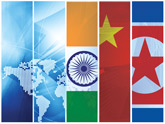
{image_1}
“Look to the east, young man,” could be the slogan for the coming decade and beyond as the world is increasingly impacted by the influence of China and other Asian nations. From matters of the economy to the military, science to space exploration, even tourism, the East is flexing its muscles, and the countries of the world are taking notice. Certainly not least among them is Israel.
Continue Reading »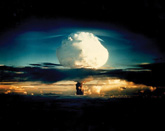
{image_1}Having been unable to convince Iran to halt their nuclear program with international criticism, sanctions, and even threats of military action, the world took notice when a computer worm appeared to threaten that otherwise invincible nuclear drive. According to The New York Times, the computer worm, or malware named Stuxnet, targeted several countries, but its impact in Iran was enormous. Around 30,000 computers were affected, including personal computers connected to Iranian nuclear personnel. According to The Washington Post, Stuxnet has the ability to attack industrial control systems—including nuclear ones. Then came the big news: Iran’s IRNA news group reported that the Bushehr nuclear reactor start-up process had been delayed, for weeks at least.
Continue Reading »
{image_1}The designation of Israel as the “Jewish state” has gotten a lot of attention over the past couple years, especially after Prime Minister Benjamin Netanyahu called upon the Palestinians to acknowledge the fact as part of a prospective peace accord with Israel.
Continue Reading »
{image_1}In the aftermath of the Mavi Marmara Gaza flotilla incident, in which Israeli soldiers acting in self-defense resulted in the deaths of nine activists, Israel chose to significantly lighten the blockade of the Hamas-governed Gaza Strip….
Continue Reading »
{image_1}Israel’s enemies are amassing against her and like a snowball rolling down a hill, they are gaining momentum as they go. International voices are vilifying Israel in the wake of the “flotilla affair” and accusations are rampant that she is an apartheid state, a Nazi regime, and a starver of Palestinian children. Statistics are being twisted and facts ignored in a frenzied attempt to delegitimize the nation. But in the midst of it all, growing numbers of parliamentarians worldwide are joining forces to support Israel within their governing bodies and to defend her in the international arena.
Continue Reading »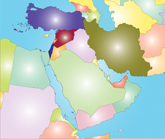
{image_1}Tens of thousands of rockets to the north. More rockets to the south. A regime threatening genocide and seeking nuclear weapons to the east…
Continue Reading »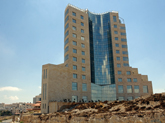
{image_1}In August of 2009, Palestinian Prime Minister Salam Fayyad announced a bold and ambitious plan to build the institutions for statehood in just two years. In March of 2010, the US, the EU, the United Nations, and Russia followed suit, calling for a Palestinian state to be formed within two years of the restart of peace talks with Israel. Beyond the political questions of whether or not negotiations can be complete by then, or whether the world is prepared to accept unilateral Palestinian statehood, lies a much more essential question: Can the Palestinians be ready for statehood in two years or less?
Continue Reading »All logos and trademarks in this site are property of their respective owner. All other materials are property of Bridges for Peace. Copyright © 2025.
Website Site Design by J-Town Internet Services Ltd. - Based in Jerusalem and Serving the World.